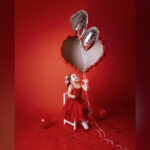When to call the doctor about your child’s cough

Come winter, it’s difficult to escape the cacophony of hacking and throat-clearing that accompanies the common cold. Fortunately, most coughs are associated with self-limiting respiratory infections and will clear up on their own with time. But how do you know when a cough is worrisome — and when it’s time to call your pediatrician? We asked Dr. Tregony Simoneau, a pulmonologist in the Aerodigestive Center at Boston Children’s Hospital, to weigh in. Here are seven things to consider when making the call.
Get more answers from Boston Children’s Hospital.
Related Posts :
-

An unbreakable bond: Brothers turn medical complexities into superpowers
“Look! Is that one JetBlue? I think that one’s Delta!” Running through the grass, climbing on the jungle gym, ...
-

From swallowing troubles to doughnuts: How vascular ring treatment helped Everly
By the time she was a year old, Everly Parisee was frequently wheezing. Then she had trouble swallowing foods. Her ...
-

New insight into the effects of PPIs in children
Proton-pump inhibitors (PPIs) are frequently prescribed to suppress stomach acid in patients with gastroesophageal reflux disease (GERD). Prescribing rates of ...
-

How transnasal endoscopy got Jamie back on the golf course
Jamie is like most 15-year-olds — he goes to school, hangs out with his friends, and still makes time to get ...





